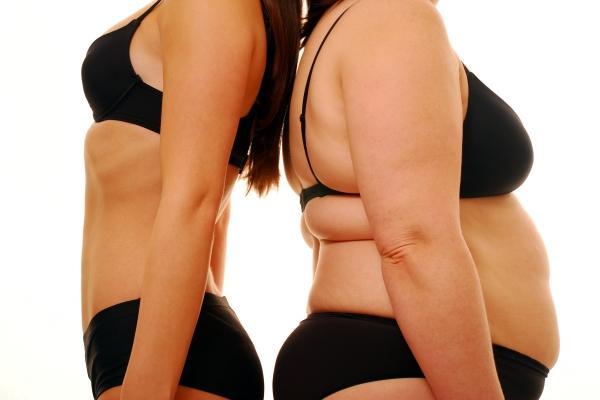What Causes Obesity? Answer May Affect Your Waistline

People's beliefs about what causes obesity may affect their waistlines, according to a new report.
People who named a lack of exercise as the main cause of obesity were more likely to be heavier than those who blamed a poor diet, according to the findings.
"Across multiple studies, we found the first evidence that people generally have two different lay theories about what causes obesity, and that these beliefs impact people's actual likelihood of being overweight," wrote the study authors, led by Brent McFerran, a marketing professor and social psychologist at the University of Michigan in Ann Arbor.
More than two-thirds of adults in the United States are overweight or obese, according to the Centers for Disease Control and Prevention. While research suggests that a sedentary lifestyle and genetics play roles in causing obesity, a large body of scientific evidence points toward overeating as the main culprit, the researchers said.
Many people associate exercising with eating more, McFerran said. "Exercise can be a valid way to lose weight if you can hold food intake constant, but many people struggle to do that."
In the new study, McFerran and his colleagues asked 301 people in South Korea ages 15 to 68 whether they believed the main cause of obesity was eating too much, not exercising enough, or genetics.
About half of the participants said that diet was the main cause of obesity, while about 40 percent implicated a lack of exercise. About 8 percent of people blamed genetics.
Get the world’s most fascinating discoveries delivered straight to your inbox.
Those who said diet was the main cause had an average body mass index (BMI) of 21.55, significantly lower than the average BMI of 23.10 among those who said a lack of exercise was obesity's main cause. (A BMI of 25 or higher is considered overweight, and a BMI of more than 30 designates obesity.)
The researchers also found similar trends among residents of the U.S. and France, suggesting that beliefs about obesity and weight loss are cross-cultural.
In another test in the new study, nearly 100 Hong Kong college students were asked to snack on chocolates while they completed a survey. Researchers "primed" the students prior to the survey by reading a passage about either exercise or eating as the main cause of obesity.
The researchers found that students who were primed with an exercise theory of obesity ate significantly more chocolates than students primed with a diet theory.
The findings show that people's beliefs about what causes obesity can influence eating habits, the researchers said.
"Our results echo a lot of medical research that changing one's diet is a much easier way to shave off calories than going to the gym more often," McFerran said. The study was published this month in the journal Psychological Science.
Though the researchers accounted for some factors that could explain the effects on BMI, such as level of education and age, they can't say for sure whether some other factor played a role in the results.
It's also possible that a person's BMI could affect which theory he or she found more plausible. For instance, trying to lose weight by eating less, but not succeeding, could lead someone to put more stock in exercise as the answer to weight loss.
"This study is an example of how detached we have become from what we eat," said Dr. Mitchell Roslin, chief of weight-loss surgery at Lenox Hill Hospital in New York. "We define ourselves by what we do — as writers, doctors, firemen — but we each only have one body. We must start defining ourselves by our health."
But Roslin, who was not involved in the study, said the study's usefulness in practice may be limited. "Psychologists have been trying for years to identify an obese personality that could help with behavioral counseling, but this study doesn't do that," he said. "Obesity is very complex. There is no one personality type."
Follow LiveScience @livescience, Facebook & Google+. Original article on LiveScience.com .


